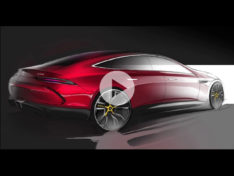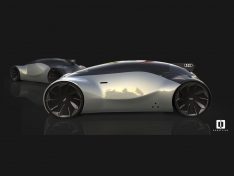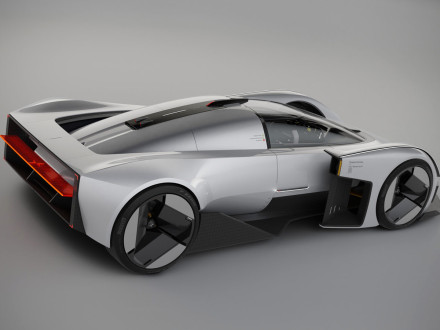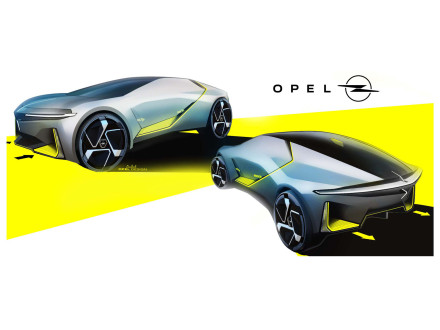The Volvo 360c represents a holistic vision of the future of autonomous travel, and explores the possibility of entering the multi-billion dollar domestic air travel industry.
The base vehicle is a fully electric, autonomous car without a human driver. The entire designs is focused on the cabin which can be customized in many ways thanks to the freedom allowed by the absence of a cockpit, steering wheel, and driver’s seat.
The potential applications include a sleeping environment, mobile office, living room and entertainment space, and underline Volvo’s traditional human-centric approach.
The design language reflects and evolves the brand’s current DNA, with a refined, clean interior with a hi-tech look and an exterior that uses simple, linear surfaces defined by tight lines and simple geometric shapes.
This surface treatment gives the 360c a look more geared towards industrial design rather than emotional design – which reflects the character and purposes of the project.
(Source: Volvo)
“The business will change in the coming years and Volvo should lead that change of our industry,” said Håkan Samuelsson, president and CEO of Volvo Cars. “Autonomous drive will allow us to take the big next step in safety but also open up exciting new business models and allow consumers to spend time in the car doing what they want to do.”
The 360c represents a potentially lucrative competitor to short-haul air travel, a multi-billion dollar industry comprising airlines, aircraft makers and other service providers. Especially shorter routes where the distance between origin and destination is around 300 kilometres are prime candidates for disruption by an alternative mode of travel.
For example, within the United States over 740 million travellers embarked on domestic flights last year and America’s domestic air travel industry is worth billions of dollars in revenue. Several busy domestic air routes, such as New York to Washington DC, Houston to Dallas and Los Angeles to San Diego, are more time-consuming by air than by car when including things such as travel to the airport, security checks and waiting times.
“Domestic air travel sounds great when you buy your ticket, but it really isn’t. The 360c represents what could be a whole new take on the industry,” said Mårten Levenstam, senior vice president of corporate strategy at Volvo Cars. “The sleeping cabin allows you to enjoy premium comfort and peaceful travel through the night and wake up refreshed at your destination. It could enable us to compete with the world’s leading aircraft makers.”
Beyond new potential customer groups for Volvo Cars’ business, the 360c also carries implications for the future of travel, city planning, infrastructure and modern society’s environmental footprint. It does not just reimagine how people travel but also looks at how people engage with friends and family while on the move, and how they can recapture time while travelling in the cities of the future.
“Autonomous vehicle concepts have a tendency to become a technology showcase instead of a vision of how people use it,” said Robin Page, senior vice president of design at Volvo Cars. “But Volvo is a human-centric brand. We focus on the daily lives of our customers and how we can make them better. The 360c is the next iteration of this approach.”
The 360c is a first yet deliberate step towards a broad discussion about the potential for autonomous driving technology to fundamentally change society in many ways.
“When the Wright brothers took to the skies in 1903, they did not have a clue about what modern air travel would look like,” said Mårten Levenstam. “We do not know what the future of autonomous drive will hold, but it will have a profound impact on how people travel, how we design our cities and how we use infrastructure. We regard the 360c as a conversation starter, with more ideas and answers to come as we learn more.”




 share on Buffer
share on Buffer












Comments